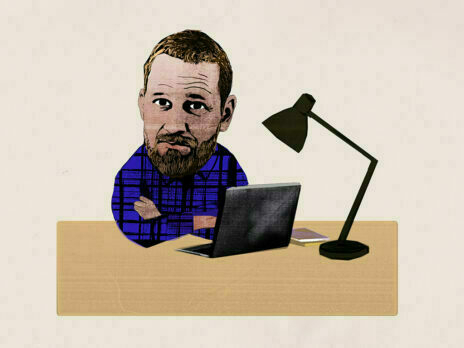Crypto is the biggest ponzi scheme of all time
Ben McKenzie, an actor turned anti-crypto activist, argues in his new book Easy Money that while cryptocurrencies highlight legitimate flaws in the financial system, they are essentially a Ponzi scheme.
He criticises the “Hollywoodisation” of crypto and the lack of regulatory oversight, warning that the tech utopianism surrounding crypto and now AI could leave many losers in its wake. It’s funny how people seamlessly move from one grift to the next without ever being properly called out on it.

The secret behind most conspiracy-driven movements is that there is often a glimmer of truth at the centre of their beliefs. Anti-vaxxers, for instance, can point to the past behaviour of large pharmaceutical companies as evidence that the medical establishment can’t be trusted. This glimmer is what’s used to ensnare you, says Ben McKenzie, the actor and cryptocurrency critic.Source: “The biggest Ponzi of all time”: why Ben McKenzie became a crypto critic | New Statesman[…]
After a friend urged him to buy Bitcoin, McKenzie – a former economics student with a degree from the University of Virginia – took a 24-part online course on cryptocurrencies, taught by the current US Securities and Exchange Commission chair Gary Gensler. He came away thinking the entire cryptocurrency thing was a scam. Worse, it was a scam with a lot of momentum behind it. “Advocates will tell you there is no ‘Bitcoin marketing department’,” McKenzie said. “But of course, if Bitcoin and crypto doesn’t have a product, if there is no actual tangible asset behind it, then in fact, Bitcoin and crypto is only marketing. It’s only a story.”
[…]
During the peak of 2021, some of the most recognisable people in the world – including Matt Damon, Reese Witherspoon and Kim Kardashian – began promoting cryptocurrencies and non-fungible tokens (NFTs).
McKenzie told me this is part of a more aggressive “hustle culture” in which people use their social contacts to promote products. Multi-level marketing (or MLM) and pyramid-selling schemes have existed for at least a century, but they have been transformed by technology. “In the 1950s, if you wanted to sell someone Mary Kay Cosmetics or Tupperware, you would need to invite them over to your house, cook them dinner, spend three hours trying to convince them [to buy products].” Now, he said, “the MLM can be done through TikTok and Instagram.”
Though McKenzie is openly critical of the celebrities who have pushed these products, he reserves ultimate blame for the sluggish regulators that allowed it to happen. “I think in many cases the celebrities didn’t really understand what they were selling. Which is not to absolve them of a moral, ethical [or] potentially even legal responsibility for their actions. But they don’t need to be bad people – they just see easy money, right?”